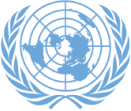Statement by His Excellency Mr. Rudolph Michael Ten-Pow Ambassador, Permanent Representative of the Cooperative Republic of Guyana on behalf of the Caribbean Community (CARICOM) at the Intergovernmental negotiations on the Question of Equitable Representation on and Increase in the Membership of the Security Council and other Matters Related to the Council
Distinguished Co-Chairs
1. I have the honour to deliver this statement on behalf of the fourteen (14) Member States of the Caribbean Community (CARICOM). I wish to thank you for your letter of 15 February in which you outlined the issues to be considered at today’s meeting and shared a provisional work plan for subsequent meetings. Regarding the latter, we appreciate that you have responded to the request made by several delegations during our last meeting. We are encouraged by this early demonstration of your willingness to both listen and respond, as together we chart a course forward towards reform.
2. CARICOM remains supportive of all efforts that will take us closer to the goal of early reform of the Council in tandem with the overall reform of the United Nations system. We believe that strengthening of the UN system must be premised on its comprehensive transformation which of necessity must include reform of the Security Council.
3. Turning to the issues for discussion today, I would at the outset like to express CARICOM’s satisfaction with your proposal for Member States to “build on” and “enrich” the Elements of Commonality and Issues for Further Consideration document which was produced during the 71st session. CARICOM remains convinced that it is counterproductive to disregard the work of previous sessions and to start our deliberations afresh each time. This goes against the mandate that we continue to give ourselves to build on the work of the previous session. We are therefore supportive of your stated intention to do just that but reopening the last outcome document for further development.
4. As requested, CARICOM would like to offer the following preliminary suggestions on how the document could be taken forward.
Page 3 of 5
5. First, the section titled Background and Current Context should of necessity be updated towards the end of the meetings for this session to account for the work that will be carried out. It would be important to highlight in this section that Member States were invited to build and enrich the document during 72nd session and that based on their feedback the document was further developed.
6. Second, CARICOM believes that it is important to refrain from selectivity when updating the paper. Decision 62/557 is clear that the basis for the IGN would be, inter alia, “the positions and proposals of Member States, regional groups and other groupings of Member States”. No submission of any State or group of States should therefore be arbitrarily excluded. On this note, CARICOM supports the call made by the African group for its position to be fully reflected in the paper and we anticipate that the next iteration of the document will be updated accordingly. In terms of how this should be done, as you have previously asked, we believe that the African group is best positioned to provide guidance in this regard. CARICOM nonetheless proffers that the group’s specific position on each pillar should be accounted for in the document.
7. Third, in order to stimulate deeper and more meaningful consultations and engagements between and among Member States and groups of Member States, CARICOM believes that it would be useful to clearly identify the proponents of the positions and proposals contained in the document. This could potentially add a certain dynamism to the process whereby Member States could: i. directly seek clarity on any given position or proposal ii. update their own positions or proposals so that distinctive nuances are accurately reflected; and
Page 4 of 5
iii. more easily identify instances where their positions and proposals converge with those of others. This, of course, is not an exhaustive list of the advantages to be derived from clearly identifying the proponents of positions and proposals.
8. Our final submission with respect to enriching the document would be to include a section that outlines all of the proposals on the process that should be followed in order to advance this agenda item. The proposal for a text would naturally be included in this section as well as all other ideas that have been tabled. It would also be important to identify the proponents of these proposals as well, as this could be very helpful in measuring the kind of support coalescing around the proposals and hopefully lead to more serious discussions on their utility.
9. On the matter of inter linkages between the clusters, CARICOM wishes to note the following. i. The reform of the Security Council that our region envisages would see a Council on which the various regions of the world are equitably represented and one that provides greater opportunity for the participation of developing countries – Small Island Developing States (SIDS) in particular. In order to achieve this, CARICOM believes that both the permanent and non-permanent categories of membership need to be expanded. In line with this expectation, CARICOM is broadly supportive of a Council numbering in the mid to upper twenties.
ii. On this note, CARICOM advocates that any reform of the Council should address the representational gap that exists, given that the Council as currently configured is not reflective of the UN today. Entire regions are unrepresented in the permanent category and underrepresented in the
Page 5 of 5
non-permanent category. We believe that any reform must address this deficit and wish to reiterate our support for the African position in particular. CARICOM holds firmly to the view that we must right the wrong against our African brothers and sisters in any future reform of the Security Council.
iii. CARICOM also continues to advocate for a rotating seat for [SIDS] across all regions given the vulnerabilities, perspectives and peculiarities that these States have and the contribution that they can make towards the maintenance of international peace and security.
iv. Any expansion in the permanent category of membership raises questions about the use of the veto and while CARICOM supports its ultimate abolition, we believe that so long as it is retained its use should be extended to any new permanent member. We would however like to see its use forbidden in situations of massive violations of international humanitarian law.
Distinguished Co-Chairs
10. I conclude by thanking you for organizing today’s meeting and to reassure you of CARICOM’s commitment to the reform process.


